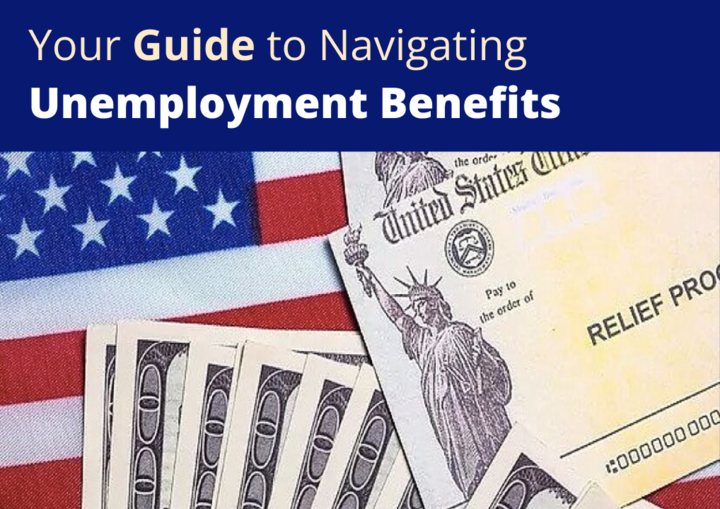Retirement income is a critical aspect of financial planning that requires careful consideration and a comprehensive understanding of various income sources. The primary components of retirement income typically include Social Security benefits, pensions, personal savings, and investments. Social Security, for instance, is a government program designed to provide financial support to retirees based on their earnings history.
The amount you receive can vary significantly depending on when you choose to start claiming benefits, with options ranging from age 62 to 70. Understanding the nuances of how these benefits are calculated can help you make informed decisions about when to retire and how to maximize your income. In addition to Social Security, many individuals may have access to pension plans through their employers.
These defined benefit plans provide a guaranteed income for life, which can be a significant financial cushion in retirement. However, the landscape of pensions has changed dramatically over the past few decades, with many companies shifting towards defined contribution plans like 401(k)s. This shift places more responsibility on individuals to save and invest for their retirement.
Therefore, it is essential to assess your total retirement income by considering all potential sources and understanding how they will work together to support your lifestyle in retirement.
Key Takeaways
- Understanding your retirement income is crucial for planning your budget and expenses in retirement.
- Creating a realistic retirement budget involves considering all sources of income and estimating expenses accurately.
- Managing healthcare costs in retirement requires careful planning and consideration of potential medical expenses.
- Budgeting for travel and leisure in retirement allows for enjoying life while staying within financial means.
- Planning for long-term care expenses is important to ensure financial security in later years.
Creating a Realistic Retirement Budget
Crafting a realistic retirement budget is a fundamental step in ensuring financial stability during your golden years. A well-structured budget should account for both fixed and variable expenses. Fixed expenses typically include housing costs, utilities, insurance premiums, and any debt repayments.
On the other hand, variable expenses can fluctuate and may include groceries, entertainment, travel, and healthcare costs. To create an effective budget, it is crucial to analyze your current spending habits and project how they may change in retirement. For instance, while some expenses may decrease—such as commuting costs—others may increase, particularly healthcare-related expenses.
To develop a comprehensive budget, consider using a budgeting tool or software that allows you to track your income and expenses over time. This can help you identify areas where you might be overspending or where you can cut back. Additionally, it’s wise to incorporate a buffer for unexpected expenses that may arise during retirement.
This could include home repairs or unplanned medical costs. By taking the time to create a detailed budget that reflects your anticipated lifestyle in retirement, you can better manage your finances and ensure that your savings last throughout your retirement years.
Managing Healthcare Costs in Retirement
Healthcare costs represent one of the most significant financial challenges retirees face. As individuals age, the likelihood of requiring medical care increases, making it essential to plan for these expenses adequately. Medicare is the primary health insurance program for individuals aged 65 and older in the United States; however, it does not cover all healthcare costs.
For example, while Medicare Part A covers hospital stays, it does not cover long-term care or many outpatient services. Additionally, Medicare Part B requires premiums and co-pays that can add up over time. To effectively manage healthcare costs in retirement, it is advisable to explore supplemental insurance options such as Medigap policies or Medicare Advantage plans.
These plans can help cover out-of-pocket expenses that Medicare does not fully address. Furthermore, it is essential to stay informed about changes in healthcare legislation that may impact coverage options and costs. Engaging with a financial advisor who specializes in retirement planning can also provide valuable insights into how to navigate the complexities of healthcare expenses and ensure that you have adequate coverage throughout your retirement.
Budgeting for Travel and Leisure in Retirement
Retirement often presents an opportunity for individuals to pursue travel and leisure activities that they may have postponed during their working years.
However, budgeting for these experiences requires careful planning to ensure that they do not jeopardize your financial security.
Start by determining how much you would like to allocate for travel each year and what types of experiences you wish to pursue—whether it’s international travel, road trips across the country, or local excursions.
When creating a travel budget, consider factors such as transportation costs, accommodation, meals, and activities at your destination. It’s also wise to account for potential fluctuations in travel prices due to seasonal demand or economic conditions. For instance, traveling during off-peak seasons can significantly reduce costs while still allowing you to enjoy new experiences.
Additionally, consider setting aside a separate savings account specifically for travel expenses; this can help you manage your finances more effectively while still enjoying the leisure activities you desire.
Planning for Long-Term Care Expenses
Long-term care is an often-overlooked aspect of retirement planning that can have significant financial implications. As individuals age, the likelihood of needing assistance with daily activities increases, whether due to chronic illness or cognitive decline. Long-term care can encompass a range of services from in-home care to assisted living facilities or nursing homes.
The costs associated with these services can be staggering; for example, the average annual cost of a private room in a nursing home can exceed $100,000 in many areas of the United States. To prepare for potential long-term care needs, consider purchasing long-term care insurance while you are still healthy and able to qualify for coverage. This type of insurance can help mitigate the financial burden associated with extended care services.
Additionally, it’s essential to have open discussions with family members about your preferences for care as you age and how those preferences align with your financial resources. By proactively planning for long-term care expenses, you can ensure that you receive the necessary support without depleting your retirement savings.
Adjusting Your Budget for Inflation and Market Changes
The Eroding Effect of Inflation
Inflation is an inevitable economic factor that can erode purchasing power over time, making it crucial for retirees to adjust their budgets accordingly. The cost of living tends to rise gradually but consistently; therefore, what may seem like a comfortable budget today could become insufficient in the future.
Combatting Inflation with Annual Increases
To combat inflation’s effects on your retirement budget, consider incorporating an annual increase into your spending plan that reflects expected inflation rates.
Market Changes and Their Impact on Retirement Finances
Market changes can also impact your investment portfolio and overall financial situation during retirement. For instance, fluctuations in stock prices or interest rates can affect the income generated from your investments. Regularly reviewing your investment strategy and making necessary adjustments can help ensure that your portfolio remains aligned with your financial goals and risk tolerance.
Seeking Expert Guidance for a Stable Retirement
Engaging with a financial advisor who understands market trends can provide valuable insights into how best to navigate these changes while maintaining a stable budget throughout retirement.
Maximizing Social Security and Pension Benefits
Maximizing Social Security and pension benefits is a vital component of securing a stable income during retirement. For Social Security benefits, understanding the optimal age to begin claiming is crucial; delaying benefits until age 70 can result in significantly higher monthly payments compared to claiming at age 62. Additionally, factors such as spousal benefits and survivor benefits should be considered when strategizing how best to utilize Social Security.
Pension benefits also require careful consideration; if you have access to a pension plan through your employer, understanding the payout options available is essential. Some plans offer lump-sum distributions while others provide monthly annuity payments. Evaluating which option aligns best with your financial needs and goals can have lasting implications on your retirement income.
By taking proactive steps to maximize these benefits, retirees can enhance their financial security and enjoy a more comfortable lifestyle.
Reassessing Your Budget as Your Needs Change in Retirement
Retirement is not a static phase of life; rather, it is characterized by evolving needs and circumstances that necessitate regular reassessment of your budget. As time goes on, changes in health status, lifestyle preferences, or even family dynamics can impact your financial situation significantly. For instance, if you experience health issues that require increased medical attention or long-term care services, this will necessitate adjustments in your budget to accommodate those new expenses.
Moreover, lifestyle changes such as relocating to a different area or taking on new hobbies can also influence your financial needs. It’s important to conduct periodic reviews of your budget—ideally on an annual basis—to ensure that it accurately reflects your current situation and future goals. Engaging with a financial planner who specializes in retirement can provide valuable guidance during these assessments and help you make informed decisions about adjusting your budget as needed throughout your retirement journey.
FAQs
What is retirement budgeting?
Retirement budgeting is the process of planning and managing your finances to ensure a comfortable and sustainable lifestyle after you stop working. It involves estimating your future expenses and income, and making financial decisions to support your desired lifestyle.
Why is budgeting for life after retirement important?
Budgeting for life after retirement is important because it helps you to maintain financial stability and security during your non-working years. It allows you to plan for potential healthcare costs, leisure activities, and other expenses that may arise during retirement.
What are the key components of a retirement budget?
The key components of a retirement budget include essential living expenses (such as housing, food, and utilities), healthcare costs, leisure and travel expenses, taxes, and any other financial obligations. It’s important to also consider unexpected expenses and inflation when creating a retirement budget.
How can I create a retirement budget?
To create a retirement budget, start by estimating your future expenses and income. Consider factors such as your desired lifestyle, healthcare needs, and potential sources of income (such as pensions, Social Security, and savings). Use a budgeting tool or consult with a financial advisor to help you create a realistic and sustainable retirement budget.
What are some common mistakes to avoid when budgeting for retirement?
Common mistakes to avoid when budgeting for retirement include underestimating healthcare costs, not accounting for inflation, relying too heavily on Social Security as a primary income source, and not adjusting your budget as your lifestyle and needs change in retirement. It’s important to regularly review and adjust your retirement budget as necessary.







